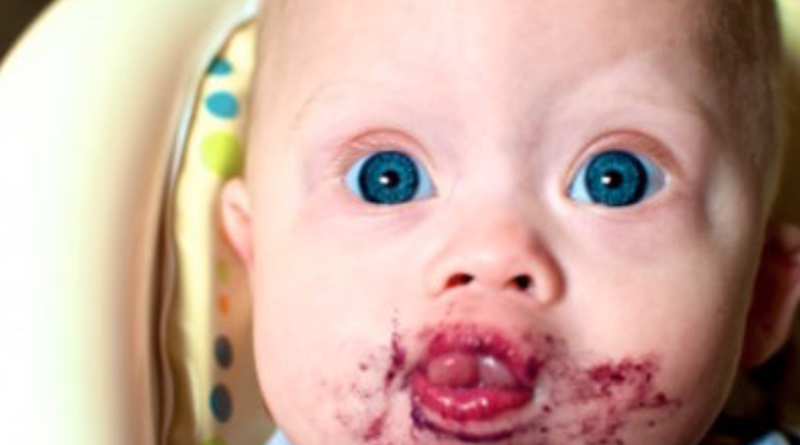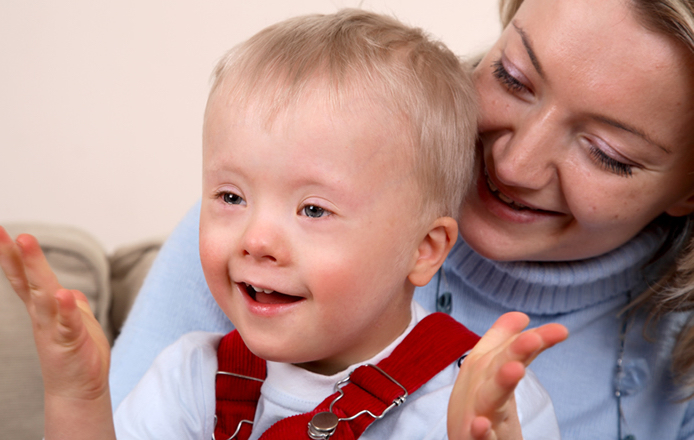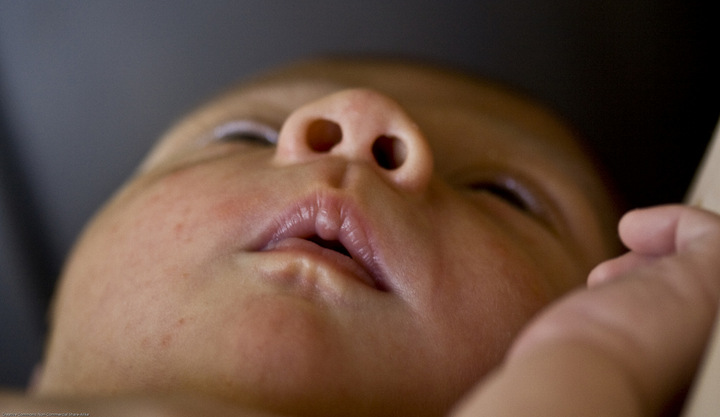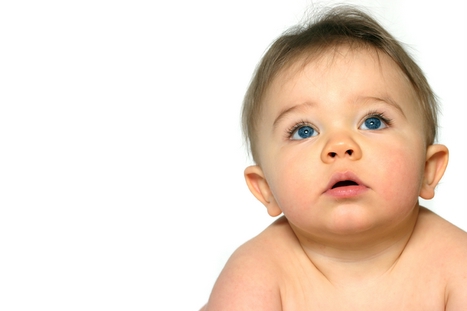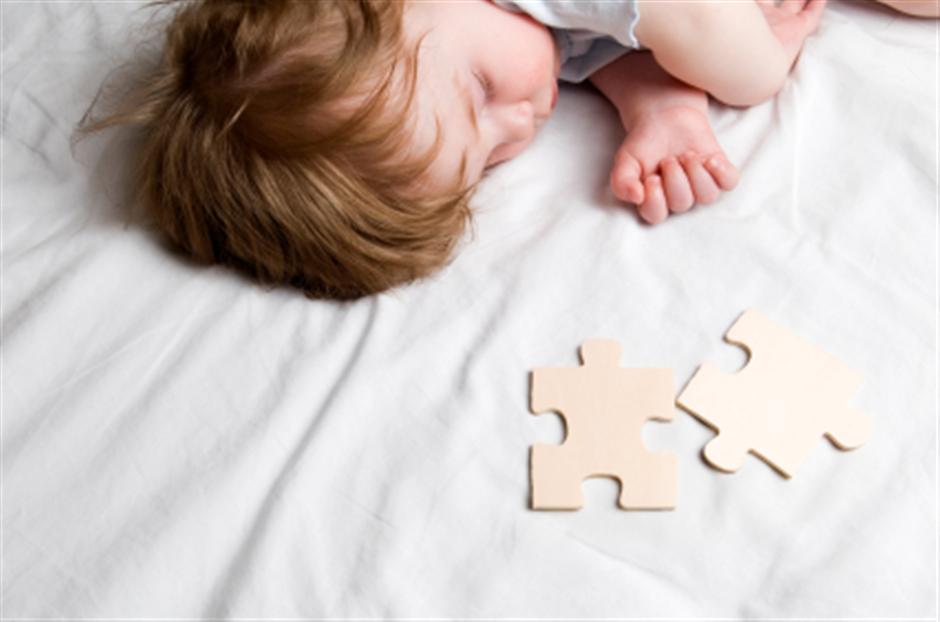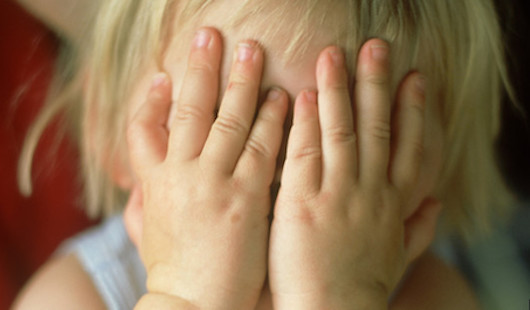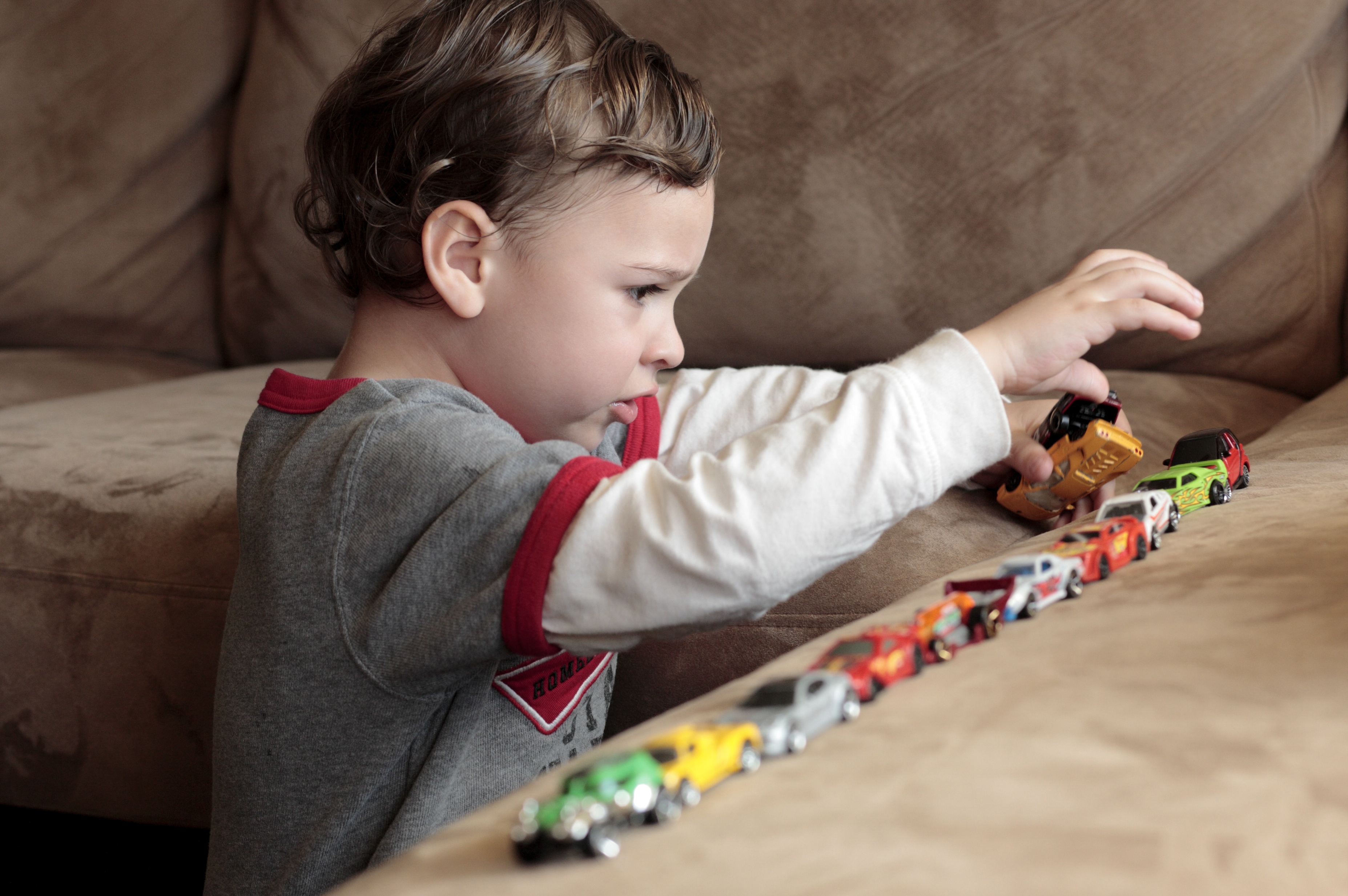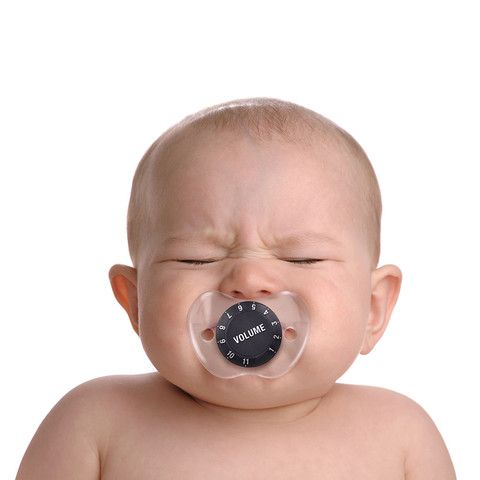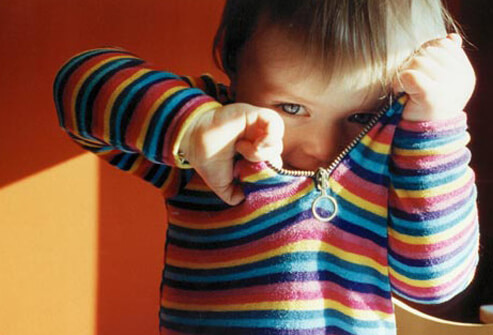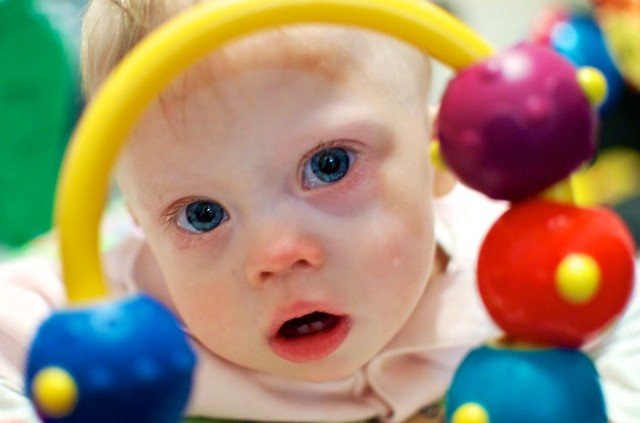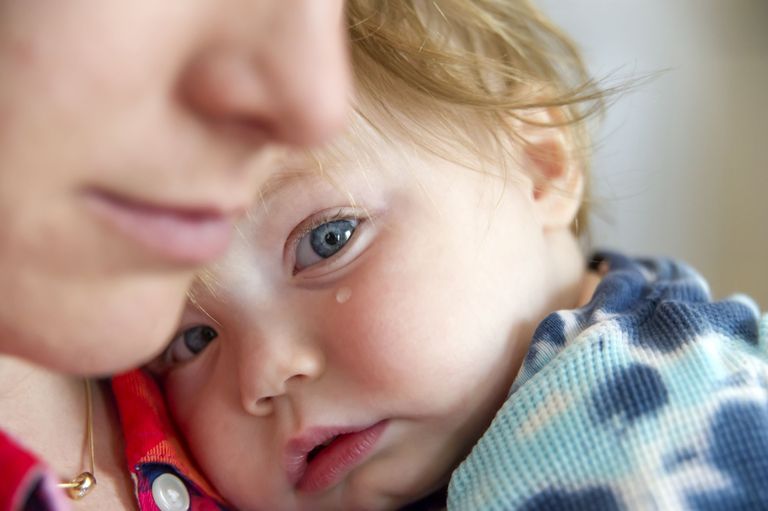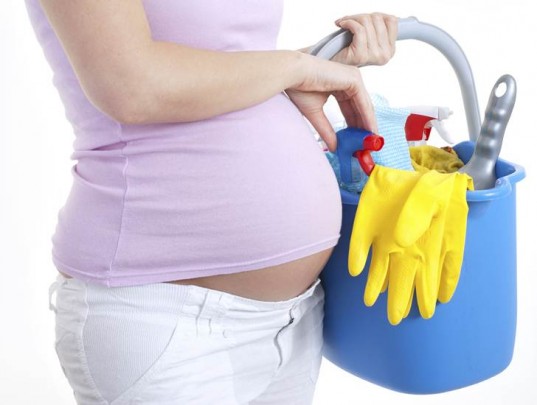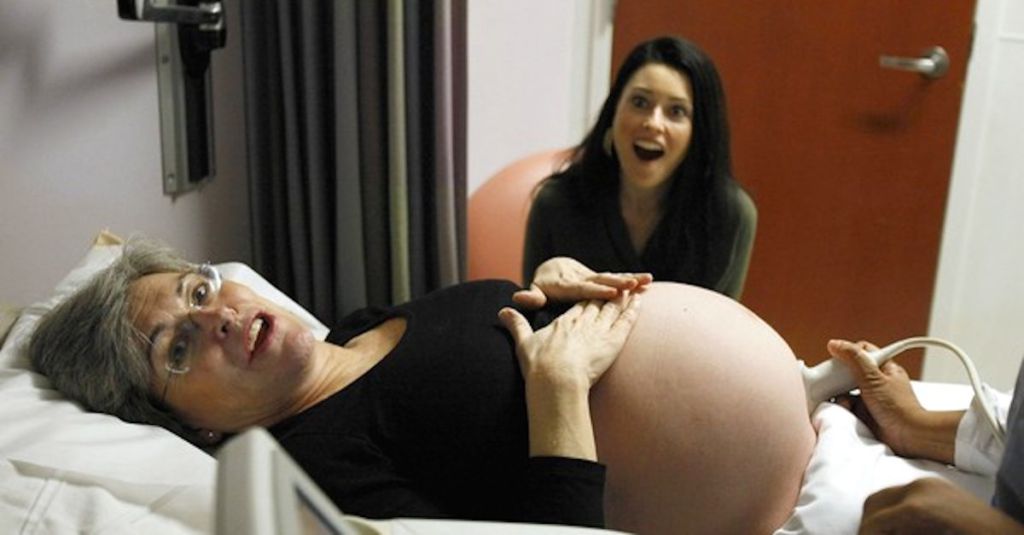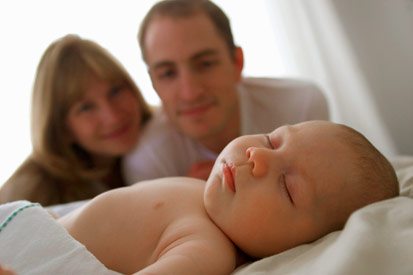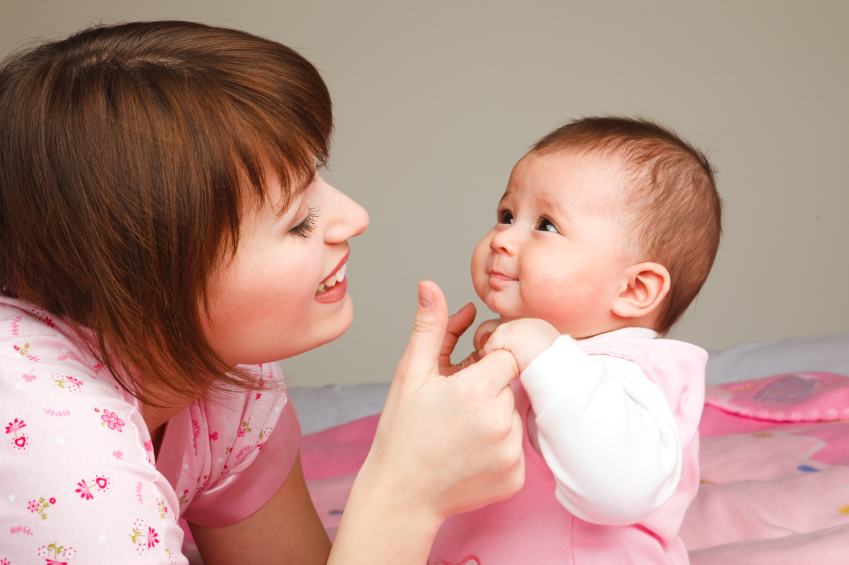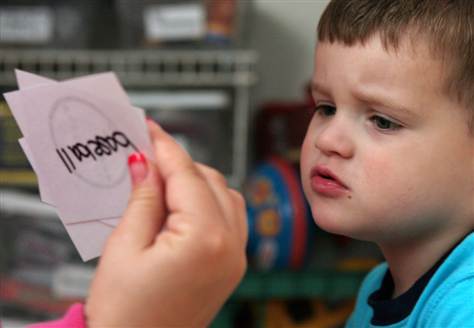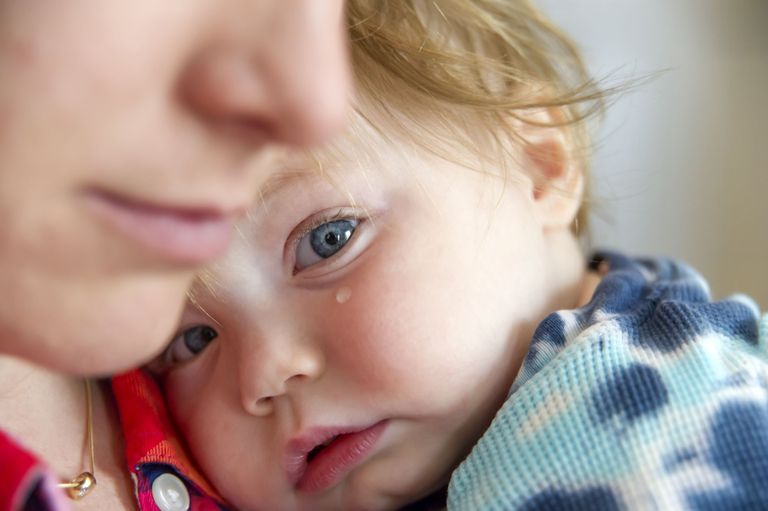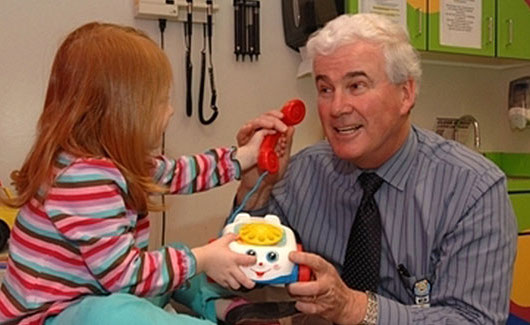Early Signs Of Autism In Babies
1. What Is Autism?
Autism is mental condition characterized by difficulty in communicating and relating to other people, while also being prone to language difficulties. Many parents do not realize their child is autistic until later in life because it can be hard to identify symptoms at this stage in development. The following are the early signs of autism, and what you need to look out for in a baby. (Continues on Page 2)
Click here to enter our Cutest Baby Photo Contest!
Something to add? Tell us in the comment section below!
2. Lack Of Eye Contact
Babies who are exhibiting the early signs of autism may have trouble making eye contact. This is usually most noticeable during feeding, or when they are being smiled at. Eye contact can be very stressful for someone with autism, but it should still be encouraged. This is because those with autism sometimes have trouble identifying emotion in other people, making eye contact very difficult.
Click here to enter our Cutest Baby Photo Contest!
Something to add? Tell us in the comment section below!
3. Lack of Awareness
If your child is showing signs of autism, you may notice that they are not very alert or aware. They may seem unaware of other people in the room or what is going on around them. This is because it can be difficult to handle too much stimuli for people with autism, and therefore have a hard time figuring out what needs to be filtered out, and where their attention needs to be focused.
Read Next: How To Know Your Baby Is Teething
Click here to enter our Cutest Baby Photo Contest!
Something to add? Tell us in the comment section below!
4. Doesn’t Respond To Their Name
Babies and toddlers exhibiting the early signs of autism may have trouble learning their name, or may simply be unable to pay attention. This may result in the child being unresponsive to their name when called.
Read Next: How To Know Your Baby Is Teething
Click here to enter our Cutest Baby Photo Contest!
Something to add? Tell us in the comment section below!
5. Difficulty Making Connections
A baby or toddler with autism may have trouble making friends and not know how to play or make friends.
6. Doesn’t Follow Objects Visually
Do you notice your baby doesn’t follow objects in their field of vision, or have trouble following the gesture when you point things out to them? This may be an early sign of autism.
Read Next: Signs Your Baby Has A High IQ
Click here to enter our Cutest Baby Photo Contest!
Something to add? Tell us in the comment section below!
7. Prefers Not To Be Touched
Read Next: How To Know Your Baby Is Teething
Click here to enter our Cutest Baby Photo Contest!
Something to add? Tell us in the comment section below!
8. Lack Of Imagination
Read Next: Signs Your Baby Has A High IQ
Click here to enter our Cutest Baby Photo Contest!
Something to add? Tell us in the comment section below!
9. Very Quiet
Read Next: How To Know Your Baby Is Teething
Click here to enter our Cutest Baby Photo Contest!
Something to add? Tell us in the comment section below!
10: Trouble Sensing Feelings
Read Next: Signs Your Baby Has A High IQ
Click here to enter our Cutest Baby Photo Contest!
Something to add? Tell us in the comment section below!
11: Doesn’t Reach Out
Babies who are showing the early signs of autism many times will not reach out to be picked up nor will they respond to the offer.
Read Next: Signs Your Baby Has A High IQ
Click here to enter our Cutest Baby Photo Contest!
Something to add? Tell us in the comment section below!
12: Trouble Hearing
Many babies showing the early signs of autism will have trouble hearing when spoken too. This could be because a lack of attention, or actual hearing issues.
Read Next: Signs Your Baby Has A High IQ
Click here to enter our Cutest Baby Photo Contest!
Something to add? Tell us in the comment section below!
Advertisement
13. Lack Of Interest
Another early autism indicator in babies and toddlers can be a lack of interest in playing with others. They may not share interest or enjoyment in things with other people, and therefore may have a hard time relating.
Read Next: How To Know Your Baby Is Teething
Click here to enter our Cutest Baby Photo Contest!
Something to add? Tell us in the comment section below!
Advertisement
14. Doesn’t Share
Read Next: Signs Your Baby Has A High IQ
Click here to enter our Cutest Baby Photo Contest!
Something to add? Tell us in the comment section below!
Advertisement
15: Lack Of Empathy
Read Next: How To Know Your Baby Is Teething
Click here to enter our Cutest Baby Photo Contest!
Something to add? Tell us in the comment section below!
Advertisement
16: Autism Risk Factors: Antidepressants
Taking antidepressants during pregnancy can increase a child’s risk for autism, especially in the first 3 months .
Read Next: How To Know Your Baby Is Teething
Click here to enter our Cutest Baby Photo Contest!
Something to add? Tell us in the comment section below!
Advertisement
17: Autism Risk Factors: Vitamin Deficiencies
Read Next: Teething Tablets Linked To 10 Baby Deaths
Click here to enter our Cutest Baby Photo Contest!
Something to add? Tell us in the comment section below!
Advertisement
18: Autism Risk Factors: Chemical Exposure
Teething is completely normal, and happens in almost ll infants. Eventually, your baby will receive all 20 of his or her primary teeth, which will eventually fall out and be replaced by 32 permanent, adult teeth.
Read Next: Signs Your Baby Has A High IQ
Click here to enter our Cutest Baby Photo Contest!
Something to add? Tell us in the comment section below!
Advertisement
19: Autism Risk Factors: Maternal Infection
Read Next: How To Know Your Baby Is Teething
Click here to enter our Cutest Baby Photo Contest!
Something to add? Tell us in the comment section below!
Advertisement
20: Autism Risk Factors: Complications
Read Next: Signs Your Baby Has A High IQ
Click here to enter our Cutest Baby Photo Contest!
Something to add? Tell us in the comment section below!
21: Autism Risk Factors: Age Of Mother
The age of the mother and father are both determining factors in terms of a baby’s risk of autism.
Advertisement
Read Next: How To Know Your Baby Is Teething
Click here to enter our Cutest Baby Photo Contest!
Something to add? Tell us in the comment section below!
Advertisement
22: Prevention: Take A Multivitamin
Read Next: Signs Your Baby Has A High IQ
Click here to enter our Cutest Baby Photo Contest!
Something to add? Tell us in the comment section below!
Advertisement
23: Prevention: Ask About SSRI’s
Women taking an SSRI should talk with a clinician about all the risks of these drugs, as they cam have harmful effects on a developing baby. Untreated depression in a mother can also affect her child’s well-being later on, so it’s not an easy decision.
Advertisement
Read Next: How To Know Your Baby Is Teething
Click here to enter our Cutest Baby Photo Contest!
Something to add? Tell us in the comment section below!
Advertisement
24: Prevention: Practice Prenatal Care
Eating healthy foods, avoiding infections, and scheduling regular check-ups can increase your chances of giving birth to a healthy baby.
Advertisement
Read Next: Signs Your Baby Has A High IQ
Click here to enter our Cutest Baby Photo Contest!
Something to add? Tell us in the comment section below!
Advertisement
25: How To Spot The Signs: Monitor
Autism is not always easy to spot in babies, and involves a lot of different of developmental delays, so it is important to make sure your child is hitting the key social, emotional, and cognitive milestones involved in early development. Developmental delays don’t always mean autism, but they may indicate a heightened risk for the child.
Advertisement
Read Next: How To Know Your Baby Is Teething
Click here to enter our Cutest Baby Photo Contest!
Something to add? Tell us in the comment section below!
Advertisement
26: How To Spot The Signs: Don’t Wait And See
Concerned parents are often met with things like “Don’t worry” or “Wait and see.” But waiting is the wrong decision, and offers no benefits. Waiting poses the risk of losing time when your child is at their best chance to improve and reach their full potential. They will not grow out of it, and will need extra help and carefully calibrated treatment.
Advertisement
Read Next: How To Know Your Baby Is Teething
Click here to enter our Cutest Baby Photo Contest!
Something to add? Tell us in the comment section below!
Advertisement
27: How To Spot The Signs: Trust Your Instincts
Hopefully your doctor will take your concerns to heart and evaluate your child thoroughly. However, sometimes even doctors make mistakes. If your think there is something wrong, trust your guy and either get a second opinion or ask to be referred to a child development specialist so you can get to the bottom of it.
Advertisement
Read Next: How To Know Your Baby Is Teething
Click here to enter our Cutest Baby Photo Contest!
Something to add? Tell us in the comment section below!
Advertisement
28: How To Spot The Signs : Take Action
There is no need to panic if your baby is a little late to walk and talk. There are is a very wide range of what is normal in child development. But if you notice your child is not hitting milestones or is exhibiting more than a few symptoms in this list, share your concerns with your child’s doctor immediately.
Advertisement
Read Next: Signs Your Baby Has A High IQ
Click here to enter our Cutest Baby Photo Contest!
Something to add? Tell us in the comment section below!
Advertisement
29: Next Steps: Schedule Autism Screening
A number of specialized screening tools have been developed to identify children at risk for autism. Most of these screening tools are quick and straightforward, consisting of yes-or-no questions or a checklist of symptoms. Your pediatrician should also get your feedback regarding your child’s behavior.
Advertisement
Read Next: How To Know Your Baby Is Teething
Click here to enter our Cutest Baby Photo Contest!
Something to add? Tell us in the comment section below!
Advertisement
30: Next Steps: See A Development Specialist
A specialist can conduct a number of tests to determine whether or not your child has autism. Although many clinicians will not diagnose a child with autism before 30 months of age, they will be able to use screening techniques to determine when a cluster of symptoms associated with autism is present.
Advertisement
Read Next: Signs Your Baby Has A High IQ
Click here to enter our Cutest Baby Photo Contest!
Something to add? Tell us in the comment section below!
Advertisement
31: Next Steps: Seek Early Intervention
Early intervention is a federally funded program for infants and toddlers with disabilities. Children who demonstrate several early warning signs may have developmental delays. They will benefit from early intervention whether or not they meet the full criteria for an autism spectrum disorder. In other words, there is more risk involved in the wait-and-see approach than in receiving early intervention.
Advertisement
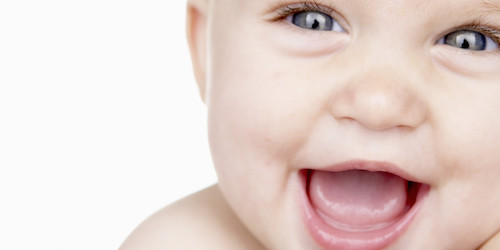
Read Next: How To Know Your Baby Is Teething
Click here to enter our Cutest Baby Photo Contest!
Something to add? Tell us in the comment section below!
Advertisement
That’s it!
Read Next: Signs Your Baby Has A High IQ
Click here to enter our Cutest Baby Photo Contest!
Something to add? Tell us in the comment section below!

